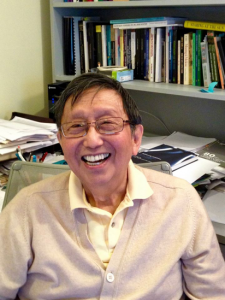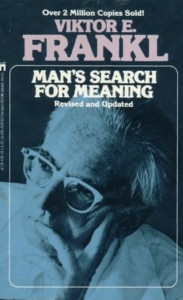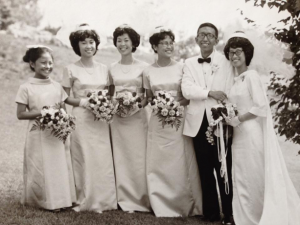Dr. Paul T. P. Wong’s autobiography, A Lifelong Search for Meaning: Lessons on Virtue, Grit, and Faith, is published in weekly installments. Stay updated here.
The final time I visited my father in Hong Kong, he was in his 80s. He said to me, with downcast eyes and great sadness, “My life is hopeless. I am just sitting here waiting to die.” This image has haunted me for years—is there life after 80? Can there still be hope and meaning even in our advanced years?
When I started doing research more than 30 years ago, the literature seemed to suggest that everything about the human body began to fall apart after 80. Now that this dreaded age will soon be upon me, I am very surprised to discover that, apart from the daily aches and pains, I am actually enjoying my most productive years. In many ways, I am having a second childhood. Free from any obligatory work and financial worries, I have the luxury of sleeping in and doing as much or as little as I wish.
Indeed, the best way to live your life is to do so as if you are being given a second chance to start your eighteenth year again, after you have learned all the lessons at the age of eighty. The truth is, I have grown old even without realizing how I got here, except for the annual reminder of the calendar year. But I still feel young at heart, and my mind remains clear and creative. I can still work long hours to the point where I have been lovingly called “insane” by my brother and close friends for working so hard.
 Here is a picture taken a few days ago, just prior to taping an interview with Lesley Lyle, founder of the Positive Psychology People in England. As you can see, here is a happy old man who is enjoying his busy but meaningful life.
Here is a picture taken a few days ago, just prior to taping an interview with Lesley Lyle, founder of the Positive Psychology People in England. As you can see, here is a happy old man who is enjoying his busy but meaningful life.
I feel profoundly grateful and lucky. I could not have done it by myself. It may sound pious and preachy, but truly it was God who has been my refuge and strength during my most turbulent years. My wife Lilian, with whom I have been married for more than 50 years, has taken good care of me, and my family and friends continue to be an important source of support. So, what is my answer to question of whether there is life after 80?—a definite yes! There is still a lot of life left in the 80s or even 90s, as long as we have the health to be actively engaged in the pursuit of meaning.
My own research on successful aging and my personal life have clearly proven that engagement with what really matters is the most powerful source of motivation and life satisfaction, regardless of the circumstances.
If I looked back half a century at my wedding photo, I would see a poor, skinny “church mouse” who only weighed 92 pounds (by “church mouse,” I mean a pastor working on a volunteer basis without any compensation). What transformed this pathetic little guy into the present vibrant old man is the arc of my life story. Believe me, it has been a long and difficult journey.
If you ask me whether I would change anything if I were to start my life again, I would probably say that I would make the same major life choices, but without all the hardships. Unfortunately, this would also be an impossibility, because the present me is precisely the result of all my sufferings. In other words, my flourishing at this old age can only be traced to the seeds that were planted in the fertile earth of suffering.
The greatest benefit of suffering is that it triggered an existential quest and forced me to wrestle with the problem of the meaning of life at a very young age. This is both a spiritual and intellectual problem, and it has dogged me most of my life. Even in my old age, I still need to wrestle with the challenge of how to understand the most profound question of the meaning of life more clearly. For example, recently, I have been struggling with the following meaning paradox.
Meaning Paradox
I have often heard two seemingly contradictory statements. On one hand, people want to find a meaningful job, a meaningful relationship, and more purpose in their lives. On the other hand, they believe that life has no meaning and that the search for meaning is a waste of time. These expressions actually reflect a basic paradox of human existence—the deep-seated human yearnings for meaning and purpose in a materialistic, consumerist society, which is antithetical to living an authentic and meaningful life. The challenge is how to resolve this paradox at both the personal and societal levels.
In my own struggle for meaning, I find myself having to wage an intellectual warfare on two fronts. On one front, I have to resist the dark and loud existentialist chorus that life is inherently meaningless and absurd. On the other hand, I have to challenge the seductive positive psychology tune that life is a joy ride and that happiness and meaning can be found simply by practicing some exercises based on scientific research, without pain and without tears. I have reasons to believe that both sides represent a truncated view of life. To me, the truth lies somewhere in between these two extremes. Yes, life experiences may indeed indicate that life has no intrinsic meaning, but we need to believe that we have the capacity and potential to discover meaning and authentic happiness. There is no shortcut, no easy way in the existential quest.
Many years ago, I decided that the key to resolve this meaning paradox may rest in exploring the intersection between existentialism and positive psychology, but such an exploration has encountered numerous obstacles.
No Room for Mavericks
Career-wise, this was definitely not a wise move. Going it alone is not a recipe for success in academia. By pursuing my own narrow path, I have been regarded as a maverick by some and treated as an outsider by others. Without the necessary resources and peer support, it has been an uphill battle.
But I have no regrets. Intellectual integrity demands that I be true to my vision, even if it means that I have to create my own games. First, in 1998, I created my own network—the International Network on Personal Meaning (INPM)—with our own conference and journal. Now, I am busy organizing the 9th Biennial International Meaning Conference, expecting hundreds of people to attend from all over the world.
Second, I started publishing to integrate the best from existentialism and positive psychology, creating what I called existential positive psychology (EPP; Wong, 2010), which was later called Second Wave Positive Psychology (PP2.0; Wong, 2011). This brand has begun to attract some attention, as seen by recent publications (e.g., Ivtzan, Lomas, Hefferon, & Worth, 2015).
When I first started on this lonely path, I did not expect that I could have lasted this long. Having invested countless days of hard work, and tens of thousands of my own money, I am so grateful that the meaning movement continues to expand. I will have to wait until later to share with you my exciting adventures in another chapter. Meanwhile, I will briefly describe how I have dealt with the oldest and the biggest challenge from existential philosophy, because this was the first intellectual barrier I had to overcome in order to proceed with my meaning enterprise.
No Inherent Meaning in Life
 There is no inherent meaning in life… At least, according to the consensus of continental existential philosophers. According to Albert Camus (1955/1991), life is as meaningless as it is absurd: “The gods had condemned Sisyphus to ceaselessly rolling a rock to the top of a mountain, whence the stone would fall back of its own weight… The struggle itself toward the heights is enough to fill a man’s heart. One must imagine Sisyphus happy” (119, 123). My friend Mick Cooper has also concluded that life is inherently meaningless, “How do we deal with that? We strive, struggle, hold on to temporary meanings like a person in a vast ocean clinging on to a buoy. And that can certainly be enough to help us lead a meaningful, satisfying and fulfilling life” (Tanase, 2016). Just last week, he invited me to respond to his existential musing.
There is no inherent meaning in life… At least, according to the consensus of continental existential philosophers. According to Albert Camus (1955/1991), life is as meaningless as it is absurd: “The gods had condemned Sisyphus to ceaselessly rolling a rock to the top of a mountain, whence the stone would fall back of its own weight… The struggle itself toward the heights is enough to fill a man’s heart. One must imagine Sisyphus happy” (119, 123). My friend Mick Cooper has also concluded that life is inherently meaningless, “How do we deal with that? We strive, struggle, hold on to temporary meanings like a person in a vast ocean clinging on to a buoy. And that can certainly be enough to help us lead a meaningful, satisfying and fulfilling life” (Tanase, 2016). Just last week, he invited me to respond to his existential musing.
It is very clear that both metaphors make the case that life has no inherent meaning. Personally, I feel that existential philosophers are caught between a rock and a hard place, and there seems to be no easy way out this dilemma. On one hand, if we follow through the belief that life has no meaning, we will simply give up the futile struggle and die in sadness and despair. On the other hand, if we choose to rebel against the belief of meaninglessness with courage, we can only struggle and snatch some transitory meanings in a sea of sufferings. Neither scenario sounds very appealing. Unfortunately, several recent events in my own life seem to support the existentialist claim.
Last week, I attended one of my high school class reunions. After 60 years, it was only natural that each time, fewer and fewer people were able to make it. Some had died. Some were sick. Those who made it could only talk about the little pleasant things they could still do—eating, visiting children and grandchildren, and travelling—in addition to general discussions about health concerns. I could not sense any deeper meaning or joyful hope that could lift up my spirit at the reunion.
As a psychologist, every week I have to listen to painful stories of depression, anxiety, and meaninglessness from clients of all ages and financial conditions. I was particularly struck by one client—tall and handsome, from a wealthy family, and about to graduate from one of the top universities in Canada. Yet, he had attempted suicide several times because he found it too painful to continue living. In each of these cases, I had to struggle together with my client to instill a sense of personal responsibility and hope for a better future.
Personally, I am also beset by various kinds of health problems, from toothaches to more serious health issues. I have to spend more and more time visiting doctor’s office and medical labs, always with the mental preparation for bad news. All these experiences are enough to make one give up the futile struggle for meaning and simply enjoy life in whatever way one can before the inevitable end comes.
Things look ever bleaker and uglier, when we look at the larger picture of international terrorism, massacres, genocides, the mass exodus of thousands of hungry refugees… It makes no sense that people should continue to commit atrocities against other human beings and run the risk of becoming victims themselves. With all our intelligence, education, and the accessibility of helpful information, we behave worse than all other animals in terms of cruelty and violence.
Therefore, life has no meaning—so the existentialists declare with confidence. But wait! There is another voice, a very distinct voice declaring that life has inherent meaning and value, in spite of all blind fate, suffering, and death.
The Prophetic Voice of Viktor Frankl
 In an ironic and paradoxical way, against this dark backdrop, and out of the unimaginable horrors of the Nazi death camps, emerged the prophetic voice of hope from Dr. Viktor Frankl, a distinguished Vienna psychiatrist and Holocaust survivor. His autobiography, Man’s Search for Meaning, has sold more than 10 million copies and has been translated into more than 29 languages. Clearly, his story has touched a responsive chord in people all over the world, attesting to the validity of his logotherapy.
In an ironic and paradoxical way, against this dark backdrop, and out of the unimaginable horrors of the Nazi death camps, emerged the prophetic voice of hope from Dr. Viktor Frankl, a distinguished Vienna psychiatrist and Holocaust survivor. His autobiography, Man’s Search for Meaning, has sold more than 10 million copies and has been translated into more than 29 languages. Clearly, his story has touched a responsive chord in people all over the world, attesting to the validity of his logotherapy.
Frankl (1992) argued that suffering and death do not negate the meaning of life. Quite the contrary, they are essential, “If there is a meaning in life at all, then there must be a meaning in suffering. Suffering is an ineradicable part of life, even as fate and death. Without suffering and death, human life cannot be complete” (p. 76) He further argued that life is meaningful under all conditions, even in the most difficult situations, “The person is allowed and equipped to wrest and win meaning from life even up to his or her last breath” (Frankl, 1999/2004, p. 10).
Thus, the crux of Frankl’s argument is belief. Since the question of whether life has inherent meaning or not belongs to the realm of metaphysics and pre-suppositions, it is up to each individual make up their mind what to believe. There is no scientific answer to which answer is true, but there is definitely overwhelming empirical evidence that having a sense of meaning and purpose is the core of human experience and well-being (Batthyany & Russo-Netzer, 2014; Hicks & Routledge, 2013; Wong, 2012).
Given the adaptive benefits of meaning, why not believe? Even when individuals do not seem to make sense of their own little lives, why not believe that, at a transcendental and macro level, there is indeed meaning to human existence and nature?
It was such belief in the inherent meaning of life that helped restore human dignity, meaning, and hope even in the Nazi death camps. It is the freedom to choose to believe that enables individuals to walk into the gas chamber with prayers on their lips and with their heads held high. In other words, once we believe that life has intrinsic meaning and that we have the undeniable freedom and responsibility to choose what is meaningful, we find the solution to the meaning paradox.
Viktor Frankl has been a major influence in the development of my existential positive psychology and meaning therapy. Other influential figures include Jesus, Buddha, and Confucius. Thus, it is the convergence of major spiritual influences from the East and West that have shaped my life and guided my unique path as described in this book.
References
- Batthyany, A., & Russo-Netzer, P. (Eds.). (2014). Meaning in positive and existential psychology. New York, NY: Springer.
- Camus, A. (1991). The myth of Sisyphus and other essays (1st Vintage International ed.) (J. O’Brien, Trans.). New York, NY: Vintage Books. (Original work published 1955)
- Frankl, V. E. (1992). Man’s search for meaning (4th ed.) Boston, MA: Beacon Press.
- Frankl, V. E. (2004). On the theory and therapy of mental disorders: An introduction to logotherapy and existential analysis (J. M. Dubois, Trans.). New York, NY: Brunner-Routledge. (Original work published 1999)
- Hicks, J. A., & Routledge, C. (Eds.). (2013). The experience of meaning in life: Classical perspectives, emerging themes, and controversies. Dordrecht, NE: Springer.
- Ivtzan, I., Lomas, T., Hefferon, K., & Worth, P. (2015). Second wave positive psychology: Embracing the dark side of life. London, UK: Routledge.
- Tanase, N. (2016, Feb.). Mick Cooper: What is the meaning of life? Excellence Reporter. Retrieved from http://excellencereporter.com/2016/02/01/mick-cooper-what-is-the-meaning-of-life/
- Wong, P. T. P. (2010). What is existential positive psychology? International Journal of Existential Psychology and Psychotherapy, 3, 1-10.
- Wong, P. T. P. (2011). Positive psychology 2.0: Towards a balanced interactive model of the good life. Canadian Psychology, 52(2), 69-81.
- Wong, P. T. P. (2012). The human quest for meaning: Theories, research, and applications (2nd ed.). New York, NY: Routledge.


 Meaning Conference 2025 will be the INPM’s first in-person conference with a virtual option after the pandemic.
Meaning Conference 2025 will be the INPM’s first in-person conference with a virtual option after the pandemic.